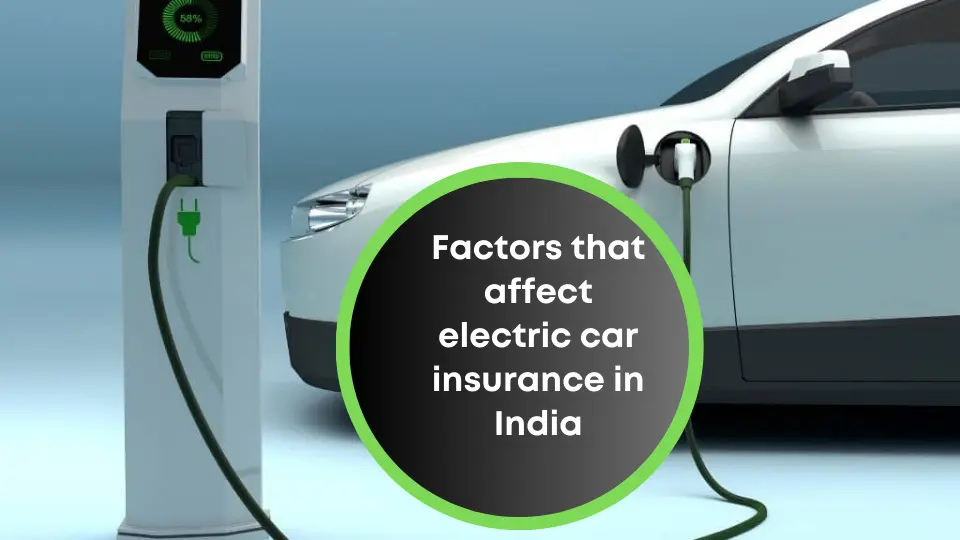
Impact of Accidents on Your Insurance: How to Lower Insurance Costs
Getting into an accident is a fateful situation that not only damages your car but also impacts your car insurance premium in many ways. Whether it's your fault or someone else's, car insurance premiums will affect your pocket. Below are various scenarios that clap back- how does an accident affect car insurance?
Does an Accident Affect Car Insurance Premiums?
An accident occurs when it is your fault or another person's mistake. In both these scenarios, your car insurance premium will be affected. However, the latter one will be less impactful.
At-Fault Accidents -
If the accident is your fault, the insurance rate will significantly increase as the insurance companies consider at-fault accidents to be the higher risk factor.
Not At-Fault Accidents -
Even though the accident is not your fault, your insurance premium will still be affected. If your insurance company covers the claim, the rate will go up, and the increase in the premium will probably be less.
Key Reasons Behind Your Car Insurance Premium Increases
-
The increase in the premium amount depends on various factors like auto insurance provider, driving record, driving history, geographic location, age, gender, etc.
-
The interest rate is relatively high for young drivers as they are categorized as high-risk.
-
According to Forbes, drivers in Wyoming encounter the lowest average increase in insurance premiums after property damage and injury accidents, which is a 31% rise.
-
North Carolina drivers have the highest average increase after property damage accidents, a 79% increase in the rate.
-
California tops the list as insurance holders experience a 97% rate increase after causing an accident with injuries, the highest increase in the US.
Why Do Insurance Prices Increase After an Accident?
-
Insurance companies used statistical data to analyze the risk. The data shows that drivers involved in accidents are statistically more likely to violate traffic rules and get hit by accidents frequently. They increase the car insurance premium to mitigate the risk as they bet on the individual who is more prone to accidents.
-
The type of accidents like at-fault or no-fault accidents leads to an increase in the premium. However, at-fault accidents are likely to have a higher premium than no-fault accidents.
-
Suppose you continue to file claims for a short time. In that case, you are more prone to accidents, resulting in high-risk assessments. This high-risk assessment directly increases your premium rates.
How Do You Avoid Insurance Increases After an Accident?
-
You can avoid insurance increases after getting hit by an accident by applying for an accident forgiveness program, which the insurance provider offers.
-
The accident forgiveness program helps mitigate the impact of at-fault accidents, which reduces the increase in insurance premiums.
-
Accident Forgiveness programs and their guidelines are different for different insurance providers. The eligibility criteria and rules are specified according to the insurance company.
-
The accident forgiveness programs waive the first at-fault accident loss from your policy. Enrolling in such a program may not increase your premium after the first at-fault accident.
-
Generally, the accident forgiveness program has a specified time frame of 3 to 5 years. After the expiration period or using the first accident forgiveness program, the insurance cost increases after you meet an accident.
-
Suppose you want an accident forgiveness program in your plan. In that case, most insurance providers add the cost of such a program to your car insurance policy, which you need to pay.
-
It is also important to note that new drivers or customers may find enrolling in such a program difficult.
How Long Does an Accident Affect Your Insurance?
When you get into a car accident, no matter if it's at fault or not, the accident gets reported to your state's Department of Motor Vehicles.
-
The state determines how long an accident stays on your record.
-
In California, it takes three years from the accident date to stay in the records.
-
A typical time for an accident to remain in records is 3 to 5 years.
How to Lower My Car Insurance Rates After an Accident?
If you have recently had an accident, here are several ways to reduce your car insurance rate.
Negotiate with Your Insurance Company:
A discount is the first primary option you have with you to reduce your cost of insurance premiums. Don't hesitate to enquire about the discounts. Many insurance companies provide discounts that can help you lower your premium.
Improve Your Driving Habits to Avoid Accidents:
At-fault accidents are prone to increasing insurance premiums, and the best way to recover from them is to drive safely. Opt for a usage-based insurance program that monitors driving behavior and provides a score and tips. The greater your driving score, the more discount you get.
Looking for Alternatives:
If your insurance provider is asking for high insurance premium rates, then comparing other insurance quotes from different companies is good. You may save more money on insurance premiums if you find suitable insurer with competitive rates.
Can I Avoid Filing a Claim with My Insurance Company If the Rate Increases?
It is not a good idea to avoid filing a claim just because the interest rate will increase. However, whether to file a claim depends on various factors. If the accident is minor, you can find quotes to analyze the repair cost before opting for coverage. Compare the repair cost with deductibles that are associated with the claim.
In case of an at-fault accident, if you have a bodily injury or damaged property, it is essential to file an insurance claim. In such cases, the insurance agent helps you to determine the best you can do in the claim situation.
Can My Driving Record Impact My Car Insurance Premium?
Driving record is a significant factor that determines the car insurance premium.
If you have a good driving record, it will help you reduce your car insurance premium. On the other hand, if your driving record shows a history of accidents or serious traffic violations, you might pay more on your car insurance premium.
Conclusion:
Your driving record shows your name and address, driver's license number, license status- whether it is valid, expired, or suspended- convictions related to motor vehicle violations, accident information, and driver control actions.
Suggested Articles:







0 Comments
Add a comment